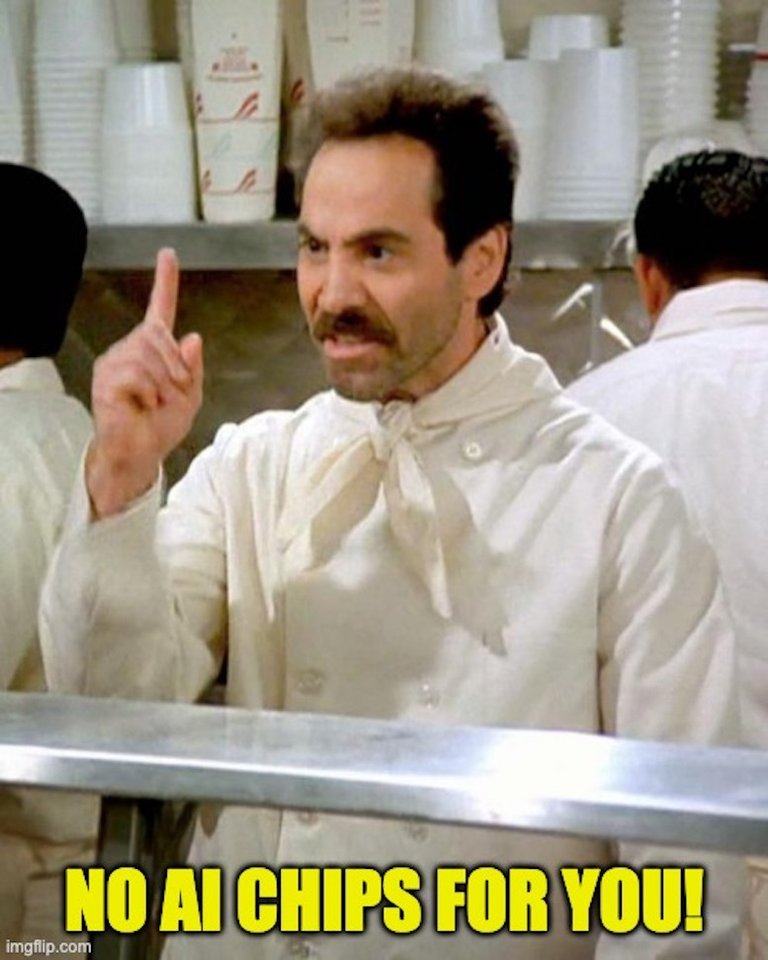
The decision by the US Department of Commerce to restrict exports of Nvidia's A800 and H800 AI chips to China seems shortsighted. It brings to mind the comical situation in Seinfeld's Soup Nazi episode, where George's ban only heightened his determination to get soup. Similarly, this export restriction is unlikely to deter China; instead, it may drive them toward the black markets before they can simply build their own, making the flow of AI chips even less traceable. China is already taking proactive steps towards producing its own AI chips (as reported here: https://cointelegraph.com/news/china-builds-giant-ai-chip-factory).
While this move by the US regulators may temporarily hinder China's access, it won't be a lasting deterrent. The Pandora's Box of AI has already been opened, and it's doubtful any single nation can close it now.
The policies of the US Department of Commerce appear to be overly cautious, potentially impeding progress within the US. These restrictions may well have unintended consequences, ultimately hastening a future where China becomes self-reliant in this technology. Much like the downfall of the Soup Nazi when his secret recipes were revealed, the US's monopoly on AI chips could also be at risk.
